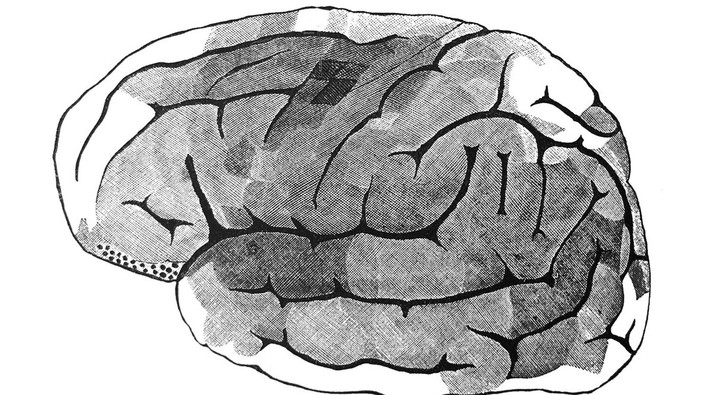12 signs that you may have a brain tumour
any cancer can spread to the brain, but the types that commonly do include melanoma and breast, colon, kidney and lung cancers.

it is estimated that 55,000 canadians are currently living with a brain tumour, according to the brain tumour foundation of canada. getty
a brain tumour occurs when the cells in the brain no longer grow or behave normally and form a mass that can block the flow of fluid and increase pressure inside the skull. these cellular changes, which can be benign (noncancerous) or malignant (cancerous) can occur at different rates — and produce different symptoms — depending on the region of the brain in which they form, according to the canadian cancer society.
tumours that begin in the brain are known as primary brain tumours and those that originate elsewhere before migrating to the area are called secondary (or metastatic) brain tumours. although any cancer can spread to the brain, the types that commonly do so include melanoma and breast, colon, kidney and lung cancers.
prognosis and treatment of a brain tumour depends on a number of factors, such as the type, grade and location of the tumour, but all forms of this type of cancer can cause severe, life-threatening symptoms. the most common type of primary malignant brain tumour is glioblastoma, which carries an average survival rate of less than a year, even with aggressive treatment.
what are the symptoms of a brain tumour?
although signs and symptoms of this disease can vary from patient to patient, you should consult a doctor if you are persistently experiencing any of the following:
advertisement
- headaches (worse in the morning or with activity)
- nausea and vomiting
- seizures
- difficulty walking or abnormal movements
- trouble swallowing or eating
- changes in personality or behaviour
- drowsiness or fatigue
- balance issues
- confusion or difficulty speaking or understanding words
- vision or hearing problems
- weakness on one side of the body
- coma
how is a brain tumour diagnosed?
diagnosing a brain tumour can be a long and frustrating process because there are over 120 different types of brain tumours and the number of symptoms involved can overlap with other medical conditions. an investigation using begins with a discussion of symptoms and a physical exam. this is usually followed by a neurological exam that tests, among other things, a patient’s reflexes, balance, muscle strength, awareness, pain response, hearing and vision. doctors may also rely on other tests when making a diagnosis, including:
- imaging. magnetic resonance imaging (mri), computerized tomography (ct) and positron emission tomography (pet) give doctors a better look inside the brain
- biopsy. a sample of the tumour may be taken (typically during surgical removal) to determine if the cancer is malignant or benign and to help guide any further treatment that may be required
advertisement
how is a brain tumour treated?
although treatment depends greatly on the type, size and location of the tumour, there are a number of options available, according to the mayo clinic. many of these forms of treatment carry side effects that are discussed with patients prior to the procedure. treatments include:
- surgery. some tumours are small and therefore easy to separate surgically from the surrounding tissue
- radiation therapy. high energy beams, such as x-rays or protons, are used to kill cancer cells
- radiosurgery. multiple beams of highly focused radiation are used to kill cancer cells in a small area
- chemotherapy. powerful drugs are used, orally or intravenously, to kill cancer cells
- targeted drug therapy. kills cancer cells by blocking abnormalities within the cells
rehabilitation may be required if areas of the brain were impacted by cancer treatment. this can involve physical therapy (to restore strength), occupational therapy (to assist the return to normal life and work) and speech therapy. complementary treatments that may help patients cope with a brain tumour diagnosis include exercise, meditation, acupuncture and art or music therapy.
can i prevent a brain tumour?
advertisement
there is currently no known way to prevent a brain tumour, but known risk factors that increase the likelihood of developing one are exposure to radiation and a family history of brain tumours.
how many people have a brain tumour?
it is estimated that 55,000 canadians are currently living with a brain tumour, according to the brain tumour foundation of canada. it is estimated that another 27 canadians are diagnosed every day. almost two-thirds of all primary brain tumours are not cancerous.
support and resources for people living with a brain tumour
for more information about brain tumours, including support services for the newly diagnosed, visit the brain tumour foundation of canada or the canadian cancer society.
dave yasvinski is a toronto-based writer.
thank you for your support. if you liked this story, please send it to a friend. every share counts.
 3 minute read
3 minute read





